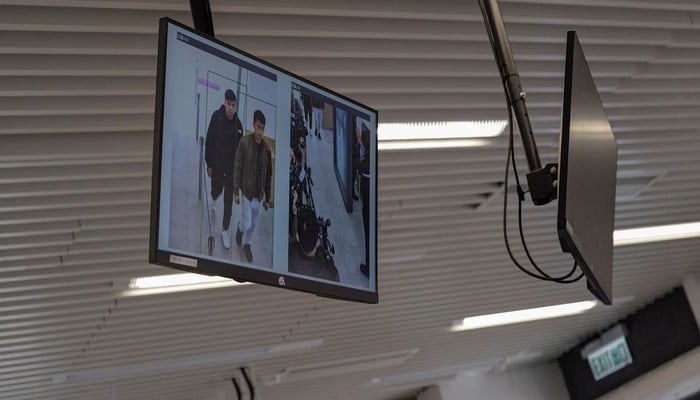
A screen shows scans of people through a new contactless channel, utilizing facial recognition technology to allow individuals to pass without stopping to show their documents, at the Chung Ying Street checkpoint, a border street where one side belongs to Hong Kong and the other to Chinese Shenzhen, during a media tour in Hong Kong, China December 23, 2024. — Reuters
In a remarkable outcome of artificial intelligence's (AI) thoughtful deployment by law enforcement agencies, Karachi police have made history by making the city’s first arrest using facial recognition technology.
Deputy Inspector General Syed Asad Raza revealed that an emergency response vehicle (ERV) operator received a real-time alert when the system identified a motorcyclist with a criminal record travelling through Karachi’s South Zone. Although the exact location was not disclosed, the alert led to swift action from the ERV team.
The suspect, Abdul Azeem, was stopped and his identity confirmed via his computerised national identity card. Azeem is reportedly wanted in six cases, including attempted murder, possession of unlicensed weapons, armed clashes with police, rioting, and terrorism.
Previously declared an absconder, he was taken into custody without incident and handed over to the relevant police station for further investigation, ProPakistani reported.
This AI-backed arrest is gaining widespread praise as a breakthrough in Karachi’s fight against crime, highlighting the powerful role of facial recognition in locating fugitives and repeat offenders.
The AI-assisted facial recognition system has also been integrated into the police’s digital network and is currently being tested across various city zones for rapid suspect identification.
Officials believe this technology would improve security and streamline police operations in Karachi, hinting at a new era in the city's crime prevention efforts.
















